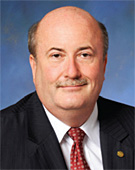
I thought I would take this opportunity to catch everyone up on what happened at the recent International Civil Aviation Organization (ICAO) Assembly. ICAO has one of these big meetings every three years — an opportunity to turn resolutions into international law, and to define the organization’s work program for the next three years. Ninety percent of this meeting was about security and the environment, but there also were a couple of important safety issues to talk about.
ICAO has grasped the importance of data gathering, sharing and protection. It is investing in a major effort that will integrate information from ICAO, Europe, the United States, the International Air Transport Association (IATA) and others to create a truly global and relevant database of safety occurrences. More players will be joining the process, and we have started discussions to see how Flight Safety Foundation can help. Part of this database will be fed by the ICAO audit program that will transition from a program of periodic audits to a program of continuous monitoring of state safety activity (ASW, 4/10, p.19). The idea is that when something goes seriously wrong — or right — with a nation’s safety oversight system, it shouldn’t take three to six years for ICAO to notice it through the previous audit cycle and communicate its findings.
Continuous monitoring and data sharing will force regulators to raise their game a bit. There was plenty of debate about how this information is shared, and with whom. Countries all support the idea of data sharing in principle, but they pull back when they realize the data might make them look bad. Stay tuned for more on that.
Data protection is even a tougher problem than data sharing. If you have been keeping track, there have been a number of landmark cases in which judges have summarily dismissed data protections and released information we had all hoped would be protected. To point out just a few, consider the ruling to release the cockpit voice recorder material from the Air France Airbus A340 accident in Toronto, or the ruling that released confidential internal reports following an Air Canada tail strike, or the release to the media of a confidential British Airways report regarding an engine failure.
ICAO recognizes this problem and is stepping forward. The Assembly called for ICAO to rewrite the guidance and standards for the protection of safety data. This is going to be a very big deal. ICAO is now forming a multi-disciplinary task force that will bring in experts from both sides of the argument. There will be legal experts from the aviation safety world and the justice departments. The good news is that ICAO has asked the Foundation to play a prominent role in this task force. We have been working on this issue for the better part of a decade, and at this point, our contribution is recognized and welcomed.
It will be up to this task force to find some sort of reasonable approach toward data protection that can then be adopted nation by nation. Don’t expect miracles, but some momentum may finally develop, and some protections may finally fall into place. In the meantime, we will hope for the best and work really hard.